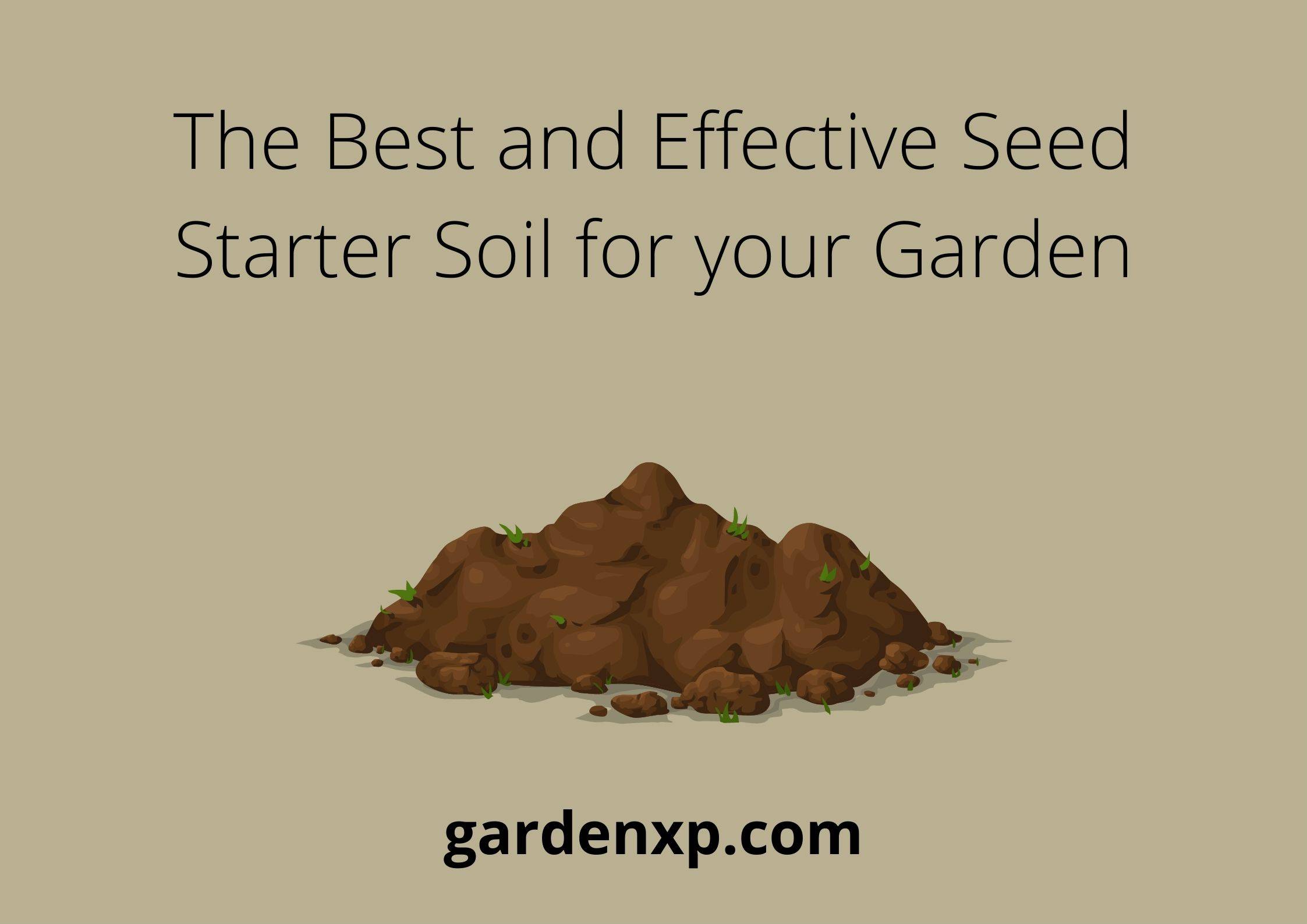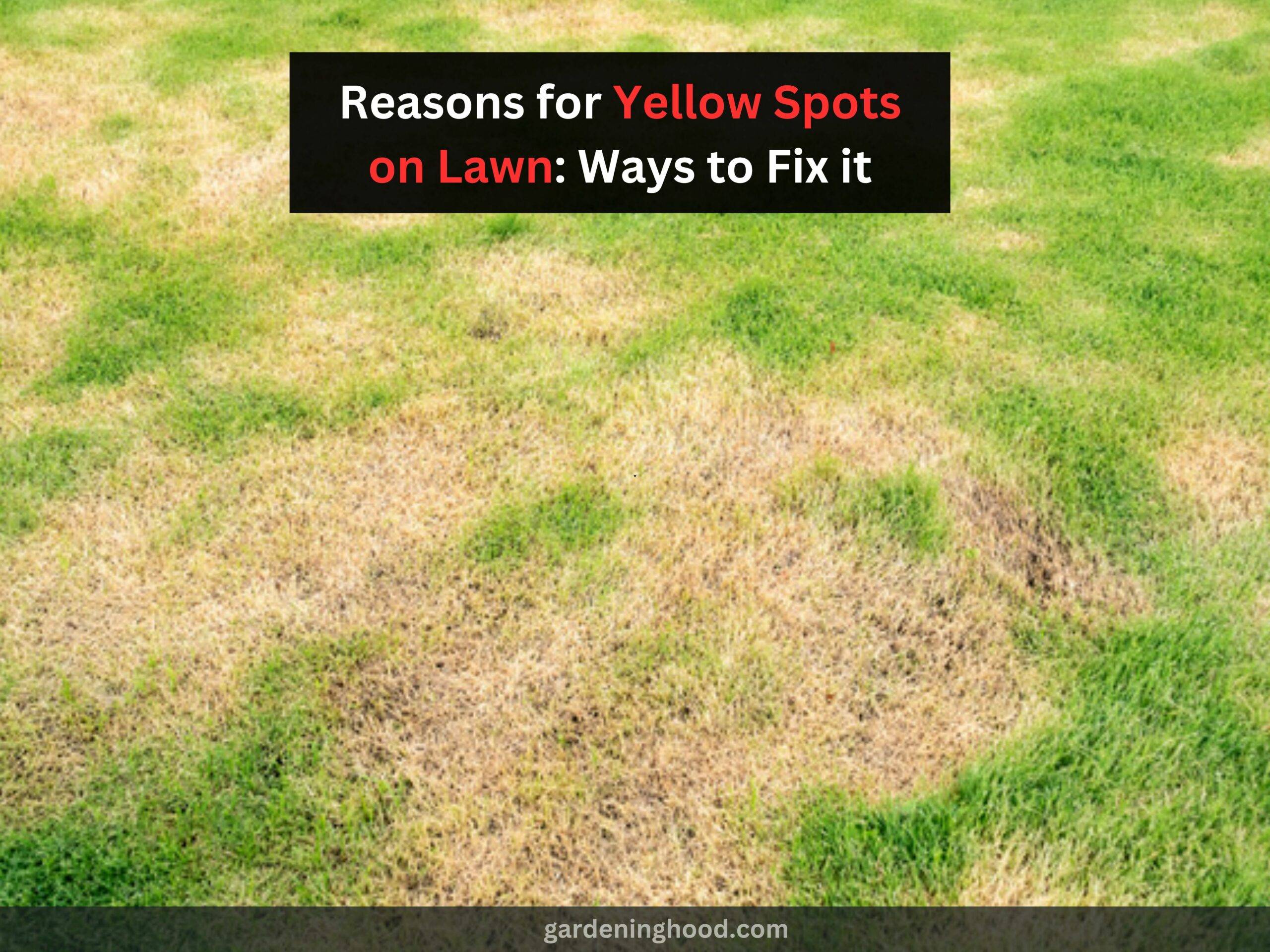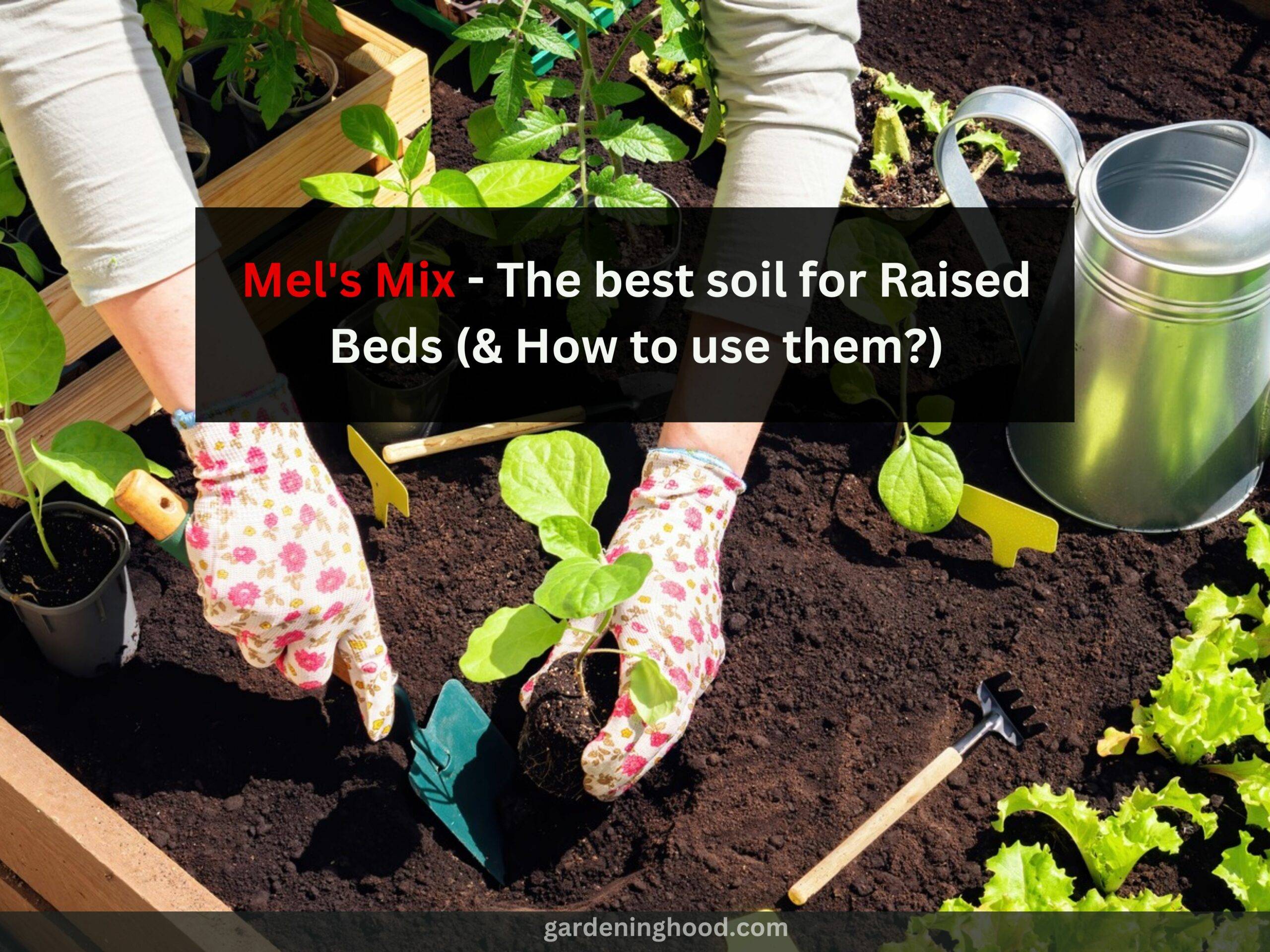Organic Mulch: 10 Best Organic Mulches for Your Garden
Being a gardener, you may be familiar with the term mulch, even though you might not be. Don’t worry about it. Actually, mulch is considered an essential product used to provide plants with nutrition, but that’s not what I’m here to talk about.
Have you heard of organic mulch? Do you know what it does and which are the best organic mulches that will help reduce weed growth and protect plants from extreme heat? I know these are essential products for gardening, but it is useless if you don’t know which organic mulch will be best for you. So, to help you out, I have shortlisted some of the best organic mulches here.
Organic Mulch
Adding mulching in your vegetable garden and ornamental beds is considered the best way of reducing weeds. The good quality of the mulch even helps to insulate plant roots by protecting the plant from extreme heat during summer and cold in winter. Using mulching also makes the soil better to retain water. It helps in strengthening the plants and tree roots.
In the case of using mulch in your garden before that, you need all the mulch options and use the best one. In this guide, I will help you by discussing the best organic mulch and picking the right mulch accordingly.
10 Best Organic Mulches for Your Garden
Using organic mulch is an essential option to use in your garden without spending any money and using yard waste to make the mulch. Here are the best organic mulches for your garden:
1. Compost
- Compost is one of the nutrient-rich mixtures that is made from Decomposing organic matter such as table scraps fallen leaves to grass clippings.
- Applying compost will help protect the roots insulate the soil and maintain the soil texture and quality.
- Using compost improves aeration in clay soils.
- In case if you are composting by yourself you need to avoid tossing in maid bones foods because they have fat content.
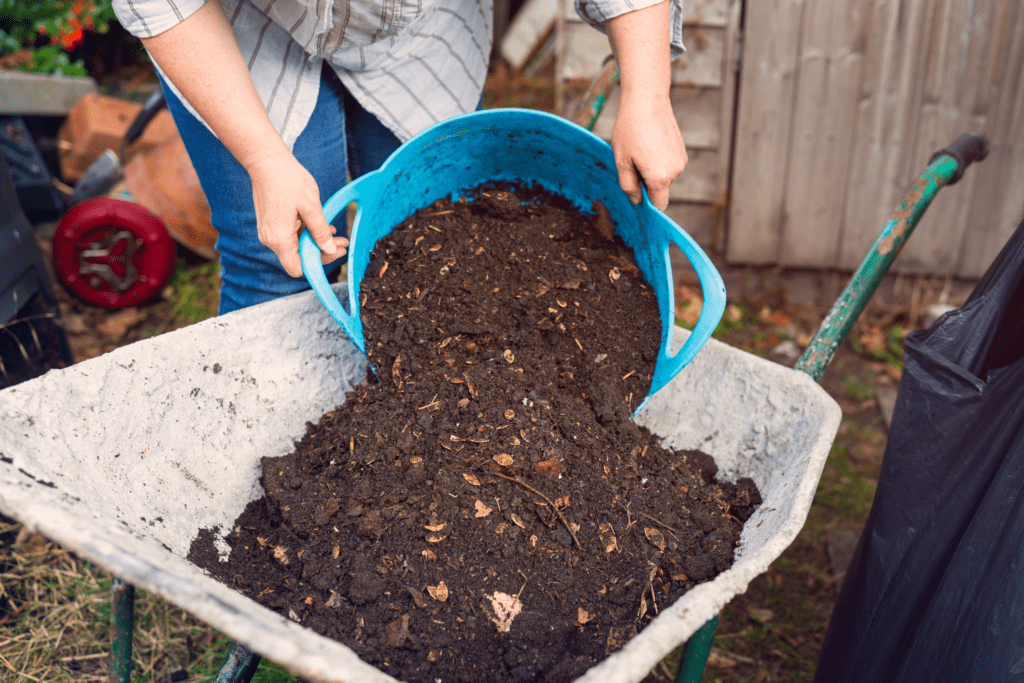
Pros and cons of compost:
Pros:
- Compost is an excellent Erosion resistance.
- Easy to make by yourself at home.
- Applying compost to the plants provides them a strong nutrient boost.
- Compost is one of the great organic gardening.
- Using it reduces the need to aerate.
- After applying the compost to the soil it breaks easily to increase soil nutrients.
Cons:
- If compared to wood mulch and pine needles the compost is not good at suppressing the growth of weeds.
- Decomposing the material takes a long time.
- During the decomposition process the compost may release an unpleasant odor.
2. Tree bark:
- Tree bark is a milch that is used for preventing wind erosion, resisting soil compaction, and helping in suppressing the weed and disease formation in the plant.
- It comes in many varieties of hardwood and softwood having different sizes such as from finely shredded to larger nuggets.
- You can easily find the bark mulch is of different colors in places like the local Garden center and home improvement Store.
- In case you want a merge that releases the nutrients slowly then I will suggest you choose a large softwood bark chip.
- The shredded hardwood mark needs to be replaced more often.
- In case you have acid-loving plants for example blueberries, rhododendrons, or hydrangea then you should select pine bark.
- You should use the tree back on slopes, around trees and shrubs. Make sure not to use the mulching in vegetables or flowers.
- The organic mulch layer depth should be about 2 to 3 inches.

Pros and cons:
Pros:
- The tree bark is resistant to compaction.
- They protect the soil from wind erosion.
- Using rebox will control the weeds and disease.
- The tree bark is easily available in many different attractive colors.
- It does have a long lifespan.
Cons:
- Due to the large bark chunk, it delays the growth or spreading of plants.
- Using tree bark forms a Crust and also the water does not reach the soil easily.
- In the case of buying an aged bark organic Mulch, it will be more expensive.
- Using this organic Mulch will attract termites or roaches.
3. Wood chips:
- The wood chips are good for suppressing the weeds and preventing soil erosion.
- You can easily get the wood chips from the local arborist and the recycling centers.
- Applying wood chip Mulch does look lovely around the trees, Pathways, and perennial Gardens.
- It contains tree bark in a wood and even the leaves.
- Using the wood chips will reduce the compaction and increase the soil fertility.
- In order if you use the longer wood chips they will have a long lifespan but these small wood chips will decay quickly.
- One thing you need to know about wood chips is that they do not rarely get tested and contain pesticides and herbicides which do harm the garden plants and ecosystem.
- In the Woods, the nitrogen in the soil will lead to nitrogen deficiency at the soil surface as they tend to steal the nitrogen from the flowers and vegetables.
- You need to use the wood chips around the trees, bushes, and Footpath.
- The right way of applying the wood chips is to layer them up to a depth of 1 inch to 3 inches.
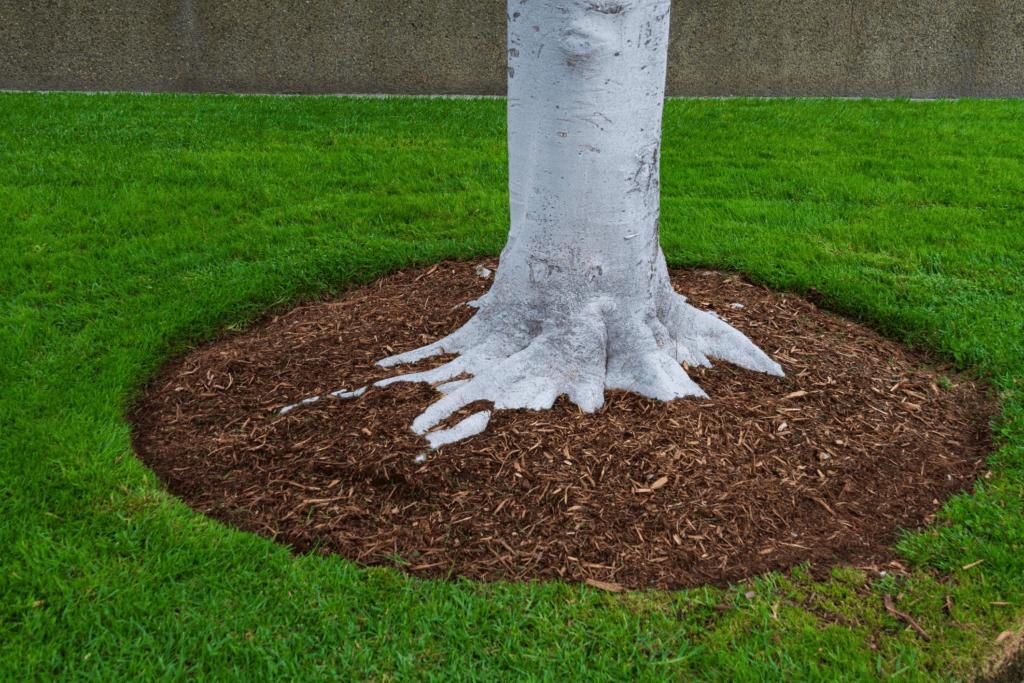
Pros and cons:
Pros:
- The wood chips are not expensive or we can say they are free to use.
- You can easily find it.
- The wood chips are good at resisting compaction.
- They are highly resistant to wind Erosion.
- The lasting Period of the wood chips is long.
Cons:
- They may contain harmful pesticides.
- Using wood chips in your garden also forms a crust that will prevent the water from reaching the soil.
- The wood chips’ pieces are not equal and the texture and color vary.
- The wood chips easily attract termites or roaches.
4. Leaves:
- The decomposing leaves do help in controlling the weeds’ growth.
- Adding leaves as organic mulch helps improve the soil structure, adds organic matter, and increases water retention.
- Always use the decomposed leaves as the fresh leaves will act like a thick wet leaf mat that will not allow water to filter.
- In case if you can’t wait for the leaves to decompose then you can use the coarsely shredded dry leaves.
- Dry leaves are a good home for pollinators like queen bees and butterflies.
- In case the soil is clay decay then you need to choose a wood organic mulch rather than the leaves.
- Never add the leaves that are infected with anthracnose, scab, or leaf spot as adding them will increase the possibility of diseases.
- Avoid adding the leaves of black walnut trees as they contain juglone which is very harmful for vegetable plants.
- The right way of adding the leaves is on turf and around trees and bushes.
- The layer depth should be between 2 to 3 inches.

Pros and cons:
Pros:
- They won’t cost any price.
- Using this organic mulch is easy to access.
- They easily get decompose to improve the soil.
- Leaves do benefit insects in winter.
- For acid-loving plants oaks and beech leaves are great options.
Cons:
- This organic mulch is not good for compaction.
- They are poorly resistant to wind as the dry leaves blow away.
- The usage of wet leaves does form like a mat.
- They are easy for spreading disease.
- They do attract the rodents easily.
- Great chance for a fire hazard.
5. Grass clippings:
- Using grass-clipping organic mulch helps in preventing weed growth.
- It does help in providing a good amount of nutrients to the soil.
- You need to make sure that the clipping needs to be dry and healthy.
- Using wet clipping will just form a mat that will prevent the water from filtering into the soil.
- Avoid the clipping that is stinky and wet.
- Repeat the layer of the organic mulching until you reach the ideal mulching height.
- Don’t use the grass clipping directly as they contain harsh chemicals that can harm the sensitive plants.
- In case the garden is hit with harsh herbicides like 2,4-D or Banvel then you need to wait for months before applying the grass clipping.
- The right place to use organic mulching is on turfgrass, annual flower, and vegetable gardens.
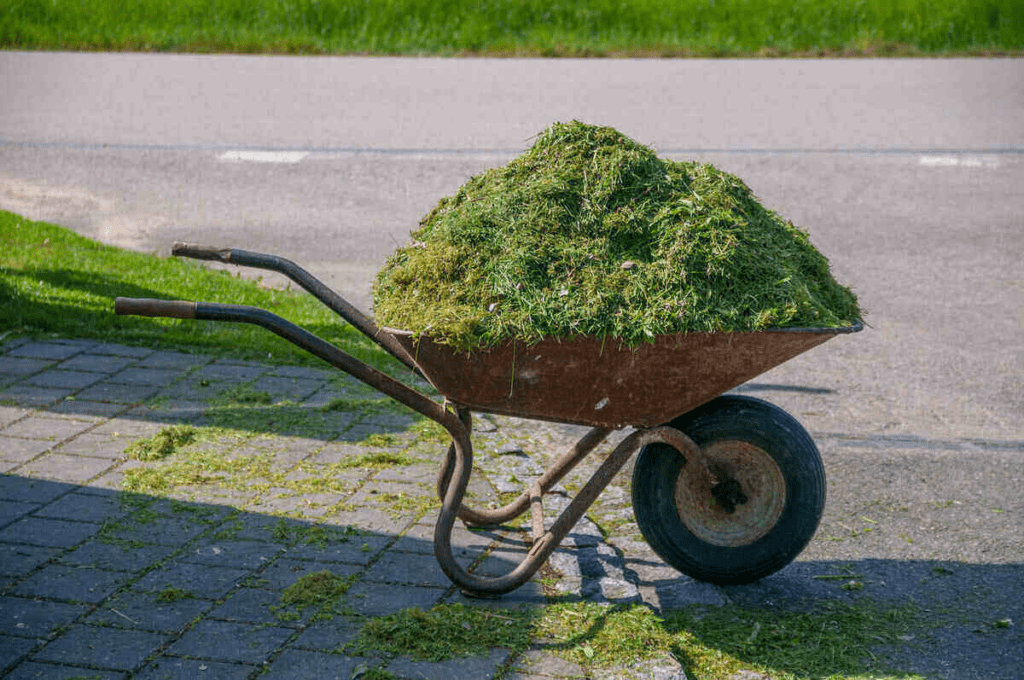
Pros and cons:
Pros:
- Spreading the grass clipping is very easy.
- This organic mulch is very easy and free to access.
- Grass clipping is an eco-friendly organic mulch.
- They decompose rapidly and help in providing the soil nutrients.
Cons:
- The grass clipping does contain harmful herbicides.
- They are not resistant to compaction.
- Using the grass clipping looks messy.
- If used wet they do form a water-resistant mat.
- If not used properly they are easy in spreading the disease.
6. Pine needles:
- This organic mulch is also called as pine straw which is airy and light mulch.
- After using it they interlock you stay in the place.
- it is best mulch to be used in places like slopes and ridges.
- The pine needles are springy and do resist soil compaction.
- You can use the pine needle for acid-loving plants like tomatoes, celery, cauliflowers, and carrots.
- It is perfect to be used in annual, perennial, and vegetable garden beds.

Pros and cons:
Pros:
- It is an excellent resistance to compaction.
- Using pine needles helps in reducing the need to aerate.
- The mulch has a long lifespan.
- It does not cost any money to buy it.
Cons:
- It can become a fire hazard so you need to be careful.
- Using the thick layer does prevent water infiltration.
7. Straw:
- Using a thick layer of straw organic mulch is a good option for vegetable gardens, annual beds, and newly seeded lawns.
- Once you harvest the straw they do look dry, hollow stalks of grains.
- There are many options available for straw from wheat and timothy to oat, rye, and barley.
- In case of applying a thin layer, it will blow away in the wind.
- Straw needs to be applied more frequently when compared to wood mulch.
- In the case of growing potatoes, you can apply straw on an ordinary hill so that the harvesting of the potatoes increases.
- Never apply near any fire pit because the straw mulch is highly flammable.
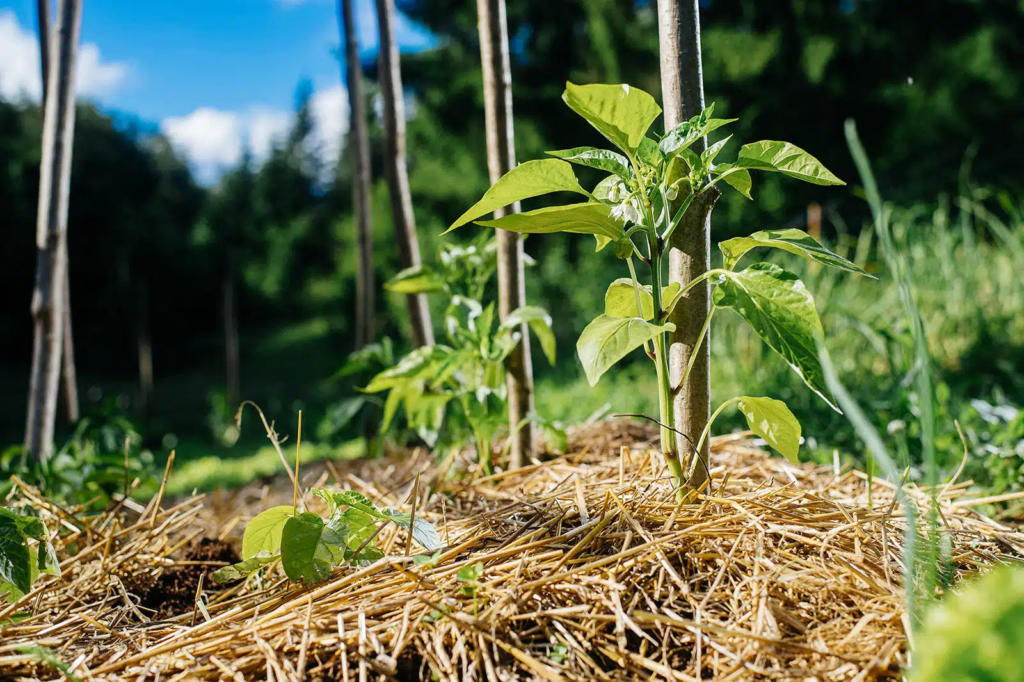
Pros and cons:
Pros:
- The straw mulch is a good resistance to compaction.
- Using it reduces the need to aerate.
- They are not so costly.
- They are easy to access
- Using it in winter helps in regulating the temperature.
Cons:
- This mulch does contain weed or grain seeds.
- It gets easily blown away.
- Using it in your gardens does attract rodents.
- It does increase the situation of fire hazards.
8. Aged sawdust:
- The aged sawdust can be used for acid-loving plants.
- This organic mulch helps in preventing the growth of weeds.
- Using this mulch tie up the soil nitrogen that leads to nitrogen deficiency at the soil surface.
- To prevent nitrogen deficiency you need to mix the nitrogen fertilizer with sawdust.
- Make sure to use sawdust that has weathered for at least some months because using fresh sawdust is a notorious nitrogen thief.
- Before using the sawdust you need the soil pH for that you need to take a portion from an area and apply a thin layer of sawdust and make sure it doesn’t show the symptoms of nitrogen deficiency.
- Don’t spread the sawdust around the sensitive plants.
- You need to fluff the sawdust every spring so that the soil is healthy.
- The right place to add sawdust is around the walkways and acid-loving shrubs and trees.
- Make sure to spread the sawdust 3 to 6 inches away from the trunk of the tree

Pros and cons:
Pros:
- The aged sawdust is excellent for suppressing the weed.
- The organic mulch is readily available.
- It’s for using it for Acid-loving plants.
- The mulch is inexpensive.
Cons:
- Using aged sawdust compacts easily.
- It also forms a water-resistant mat.
- For decomposing in soil it uses nitrogen.
- In case of wind, the organic mulch blows away.
- They are also attractive to termites.
9. Cocoa hulls:
- Cocoa beans are an aromatic attractive by-product of chocolates that while applied in your garden are beautiful flower gardens.
- Applying the cocoa hulls will add a wow factor to your Garden.
- This organic mulch decomposes quickly and is lightweight.
- They are more costly than the other organic mulches.
- Avoid keeping the cocoa hulls in the pet area as they contain theobromine.
- Never keep this organic mulch wet as it will attract pests like jumping worms and cheese skippers.
- To use the cocoa hulls you need to layer the depth by 1 inch.

Pros and cons:
Pros:
- Coco Hulls are good compaction resistant.
- Using this mulch will reduce the need to aerate.
- It is good for suppressing the weed.
- The organic mulch is long-lasting.
Cons:
- It is expensive compared to other organic mulch
- You need to keep it away from the pets as it is toxic to them.
- They can also form a crust on the surface.
- Applying wetles on the soil will attract pests.
10. Ground covers:
- The groundcovers are used to keep the soil pores open to stop compaction.
- Using it helps in preventing Erosion, insulating soil, and reducing evaporation.
- Using this organic mulch helps in attracting pollinators and insects.
- They come in some varieties like liriope, pachysandra, rosy pussytoes, creeping jenny, or periwinkle.
- For planting it you need to find a shady, dry area because in slopes and hilly areas, the grass fails to grow and has to deal with erosion problems.
- In order to get the benefit of non-living mulch and ground covers you need to plant the ground cover with the mulch bed.
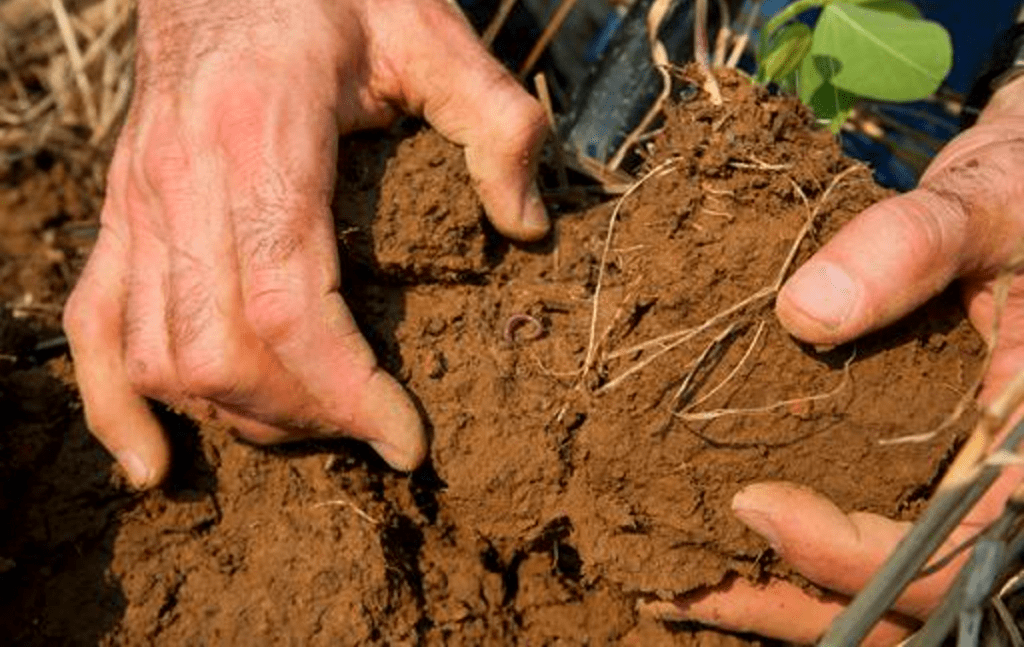
Pros and cons:
Pros:
- The ground covers are good for erosion resistance.
- It also can be used for roots to resist compaction.
- The perennial plant is not required to be replaced frequently.
- The ground cover does have low maintenance when it is compared to other plants.
- They are good for attracting pollinators.
Cons:
- When it is compared to non-living organic mulch the ground covered does require more maintenance.
- In the case of buying individual plants, it can be expensive.
- They also compete with other plants for nutrients.
- It will take time to grow.
Conclusion:
Adding organic mulch to your gardens has many reasons as it makes your garden look tidier and more organized way but it also helps in improving the soil and suppressing the growth of weeds. Hence after reading this article, you will get to know which type of organic mulch will go with your garden plants.
